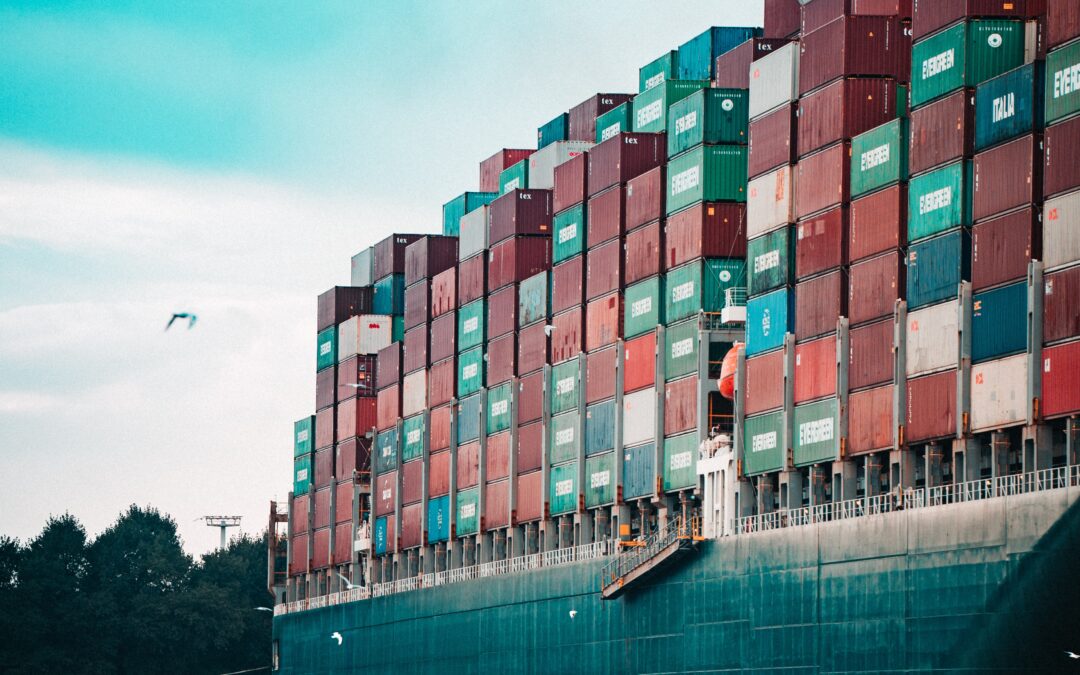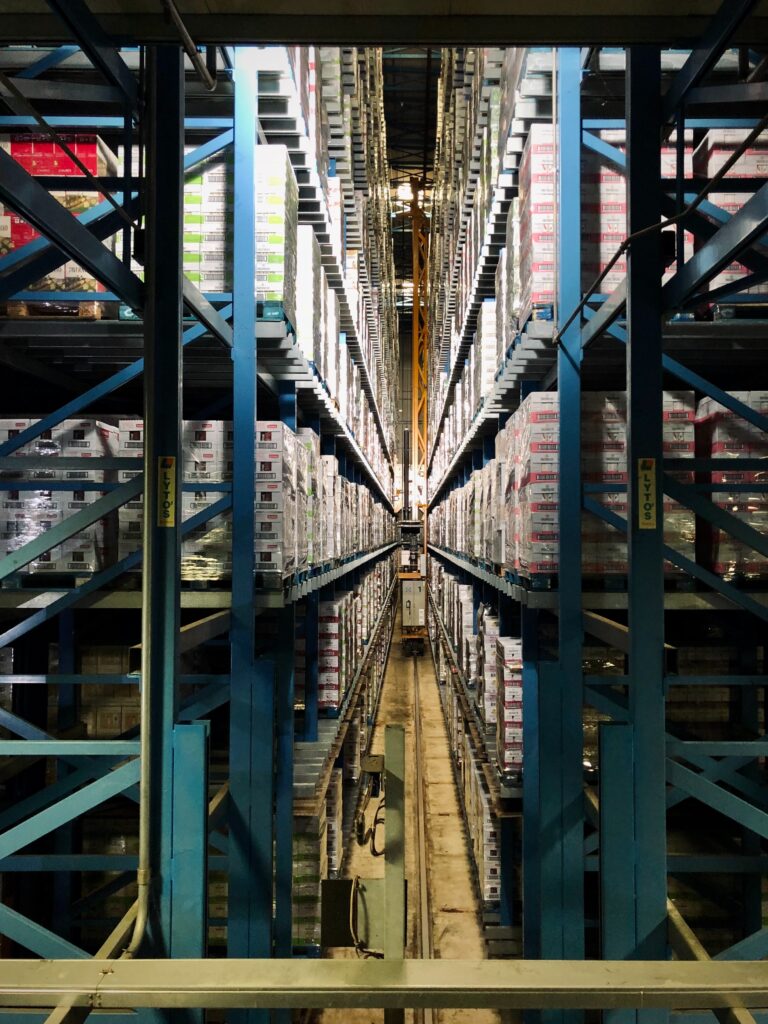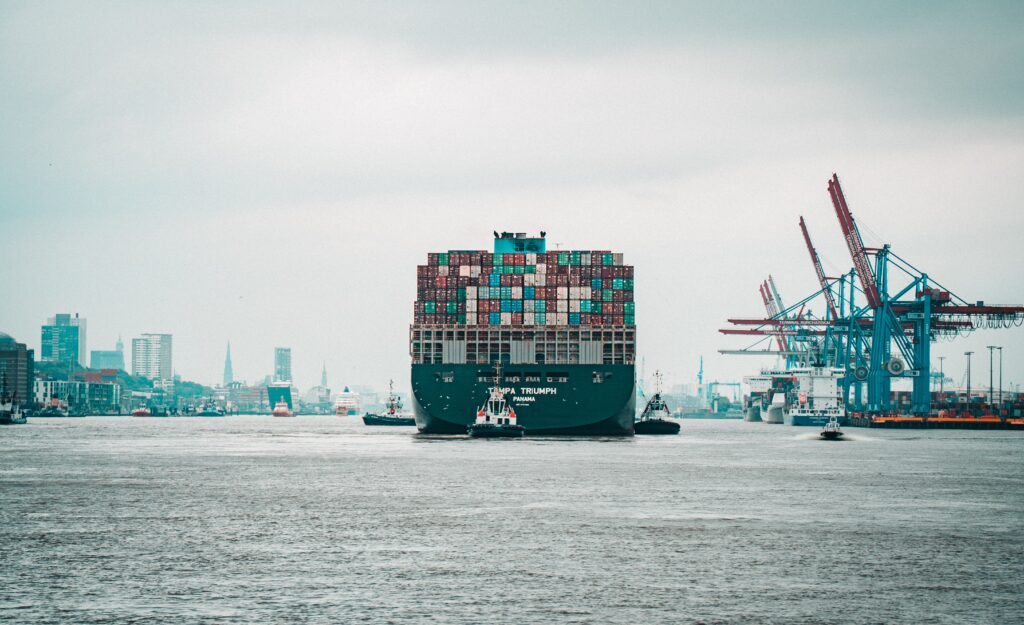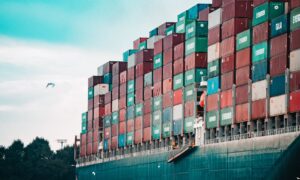If you use, manage or maintain a mailroom, you are well aware that there have been massive disruptions within the global supply chain during the past year and a half. These disruptions can seem simple on the surface: a global pandemic certainly slows down trade. But upon closer inspection, these issues are a multi-layered conundrum that impacts us all. This means something for every industry relying on the transfer of goods and services – and is an especially big deal for mailrooms around the world.
Supply Chain Basics
Human trade, and chains of supply, are about as old as us Homo sapiens. The practice of transferring something of value from one place to another is a critical element of almost all successful human societies. Supply chains are the foundation and the fuel that power various economies and cultures – and are the backbone that determines the health and wealth of communities big and small.
According to the Oxford English Dictionary, a supply chain is “the sequence of processes involved in the production and distribution of a commodity”. The silk road is a historic supply chain – as is the Nile river. Trains chug through landscapes and semi-trucks blaze through the North American interstate. It is all part of an expansive web of handoffs, transition points, warehouses, governments, delivery personnel, neighbors, and friends.
Why Are Global Supply Chains So Disrupted?
Within such a complex network of production and distribution, it comes as no surprise that disruptions are a common occurrence. Historical reasons for supply chain disruptions include war, famine, weather events such as drought or flood, fuel shortages, and trade embargoes to name just a few.
And it goes without saying that the coronavirus has been a massive disruption, and tragedy, in so many people’s lives. As of November 2021, over 5 million people have died of the virus. Our healthcare systems are ravaged by the pandemic and our societies strain to meet the needs and demands of people – sick, financially stressed, scared, and often angry.
Almost two years into this global health crisis, our global supply chains are in tatters. Our transport sector is strained – people working hard under covid-era conditions who have been pushed past the brink. Prices for groceries and gasoline are spiking. Our supply chain crisis has its roots in a labor crisis – hundreds of thousands of cargo ship crew members have been trapped in limbo for months, unable to come ashore or go home due to restrictions. Governments are moving slow to support these workers and industries – though some are now declaring the situation to be a “state of emergency” and beginning to enact initiatives.
So What Does This Mean For Your Mailroom?
The world continues to heave, rocket, and adjust to the new realities brought about by the global pandemic and the ensuing labor crisis. Additionally, there is increasing pressure from a changing climate predicted to bring about intensifying disruptions in the coming decades.
It’s a bleak picture – but the reality is that we must find ways to continue supplying necessary goods to people around the globe. We know that even the most efficient supply chains are (or will be) disrupted by unforeseen circumstances.
So what does that mean for you and your mailroom?
Ultimately, it adds pressure to you and your mailroom system to act with the utmost care and proficiency. The stakes are high. No individual can control the weather or the trajectory of a contagious virus. But we can prepare our businesses, homes, and shared community spaces to be efficient, resilient, and adaptive. Here are some ideas for incorporating just that sort of thing into your practices:
Real-Life Relationships With Tenants, Customers, And Neighbors
Real relationships with real people interacting within local, sustainable economies is a powerful way forward in the world – this applies to mailrooms as well.
Being an accessible resource to neighbors with questions and concerns, knowing the names of people you work with, engaging with the well-being of the people and places where we live – the impacts of these actions lead to sovereign, sufficient systems that are more resilient and adaptive to disruption. This may feel counter to the pressures of efficient, fast supply chain objectives – but systems, and the people within those systems, will work better when we know one another and respect the humanity existing within the process.
Support Legislation And Elected Officials With Proactive Approaches To Trade And Sustainability
Without aggressive actions from governments and corporations working to protect their workers and the environment, our global supply chain is doomed. Voting and organizing for and with leaders, legislators, and fellow citizens who understand this and prioritize a functioning and sustainable network of trade will be paramount for ensuring that our trade systems adjust as needed to meet the demands of ordinary people – whether this means getting their life-saving prescription in time or buying a turkey for the family for Thanksgiving dinner.
Invest In Accessible Efficient Mailroom Systems
As we all continue to learn in these trying times, so much is out of our control. Investing time and energy into real relationships within the community and organizing around forward-thinking leadership are critical – but there are specific things you can do in your mailroom to ensure customers, tenants, and employees that their needs are being considered and prioritized.
Smart lockers can increase the safety, security, and efficiency of a mailroom while also saving money in the long term for other priorities within a given enterprise. Often, these lockers are temperature-controlled and pirate-porch-proof. While the global supply chain might be an unpredictable tangle of crisis, you want to ensure that people can trust your part in the chain and that their items won’t disappear at the very last step of the process. After they waited all that time for their items to arrive, you can bank on smart lockers as a safe and convenient final stop on their way to people’s homes or offices.
From Disruption To Cohesion
There are plenty of predictions, hot takes, and grim stories about the future and what it holds for supply chains going forward. By combining the human powers of connection and technological innovation, we might be able to invent and invest in ever-improving systems to ship, deliver, and receive commodities. Remaining active and resilient in the face of these changes is how a successful mailroom will weather these disruptions and even thrive in spite of them.






